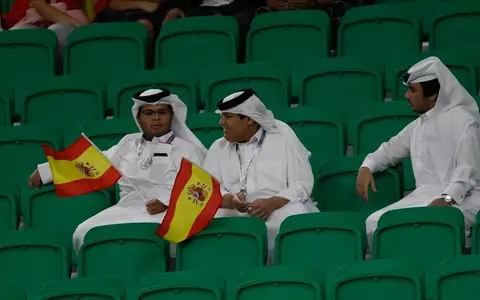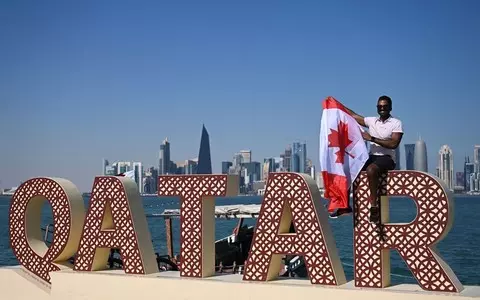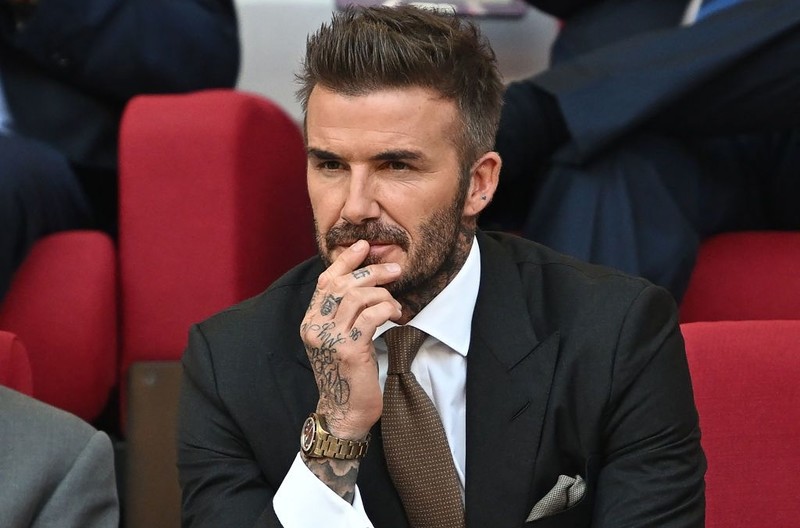Neither England’s spectacular victory in the first match against Iran (6:2) nor the bitter draw between Wales and the USA meant that in Great Britain, in coverage of the football World Cup in Qatar, strictly sporting matters dominated the game. controversy that accompanied the tournament.
Almost every day the tournament provides new threads on an issue that has grown into the number one controversy, namely the situation of sexual minorities in Qatar and related anti-discrimination protests.
Although, according to a poll, most Brits find Qatar’s hosting of major sporting events unacceptable. This is the opinion of 71 percent. football fans and 58 percent. of the general population and 55 per cent of fans in England would even support a boycott of the championship by their own national team.
In England, however, there is no big call for this, as was the case recently at stadiums in Germany. In part, this may be due to the fact that England were named among the deserving candidates for the title for the first time in many years, and Wales returned to the World Cup after an absence of 64 years.
As for fans, the worry in recent days was not whether, but how to fly to Qatar in the event of a strike by ground staff at Heathrow, as well as the decision announced before the start of the tournament that there would be no beer sales in the stadium.
On the other hand, no British politician has said something like French President Emmanuel Macron before the start of the World Cup, to “not mix sport with politics”. Yesterday, opposition leader Keir Starmer began his weekly question-and-answer session with the Prime Minister by congratulating the England and Wales players, but then pointed out that the World Cup “neither belongs to FIFA nor belongs to the host country” and that gay fans cannot freely go to Qatar. was a “cause of shame” for FIFA.
But not all politicians’ statements are so clear-cut. The words of the head of diplomacy, James Cleverly, who just days before the inauguration asked homosexual fans to respect Qatar’s prevailing customs and not flaunt their orientation, were received badly, as well as his announcement that he would be going there. himself, because one of his duties as foreign minister is to ensure the safety of British fans.

The issue of LGBT rights in Qatar is by far the most important of all the World Cup controversies in the British media. Prior to the England-Iran clash, more attention was paid than to the squad as to whether Harry Kane – and several other European captains – would play on the OneLove captain’s armband, while in Wales the main concern now is not Friday’s game against Iran but the case of confiscating supporters in Qatar’s rainbow caps. some of them carry instead of the traditional red, yellow and green.
This topic overshadowed all other controversies in the media, such as almost forced labor and even several thousand deaths among foreign workers building stadiums and other infrastructure, corruption thanks to Qatar, which has no football tradition, ensuring the holding of championships or the huge costs associated with tournaments. the.
Especially the low media presence from the first issue was surprising, as it was the British media, particularly “The Guardian”, who were the first to sound the alarm about the poor working conditions of foreign workers. Another British newspaper, The Sunday Times, released documents in 2014 proving that Qatar’s choice to host was aided by bribes, but the issue also now receives less media coverage than the plight of LGBT fans.

David Beckham is a character that combines these two threads. The former England star is now one of the faces of the tournament, claiming in advertisements that the tournament is a “platform of progress” and that Qatar is changing for the better and becoming more tolerant. He should have earned at least 10, and according to some reports, even 150 million pounds.
This money will certainly make it easier for him to endure the widespread criticism leveled at him for being an ambassador for a bad cause and destroying the “gay icon” image, which he earned by appearing years ago as the first soccer player to cover the cover of an American gay magazine.
Beckham’s reputation will certainly suffer, but in terms of the rate of decline in reputation, FIFA remains the undisputed leader. According to a survey by YouGov, conducted after the dispute over the “OneLove” armband, the positive opinion about the current world federation is eight percent. England, whereas a month before the tournament it was 14 percent, and negative 69 percent. compared to 54 percent the previous month. Among football fans alone, the percentage of positive opinion fell from 29% to 29%. to 13 percent, and negative ones increased from 62 percent. up to 79 percent
FIFA is unlikely – if ever – to regain the trust of the British people, but whether the championship in Qatar will be remembered more through the prism of sport or controversy depends primarily on the players. In the case of the Welsh, anything other than a group exit would be a resounding success, whereas if an England team do win the World Cup, the euphoria associated with it will surely overshadow any debate over the shape of the armband.
Bartłomiej Niedziński / PAP / Adriana C.

“Reader. Future teen idol. Falls down a lot. Amateur communicator. Incurable student.”


![Bogusław Wołoszański: “Achieving nuclear weapons would be the beginning of World War III” [WYWIAD]](https://storage.googleapis.com/bieszczady/rzeszow24/articles/image/877236c0-66fd-457a-9eb4-41792f9077ff)




